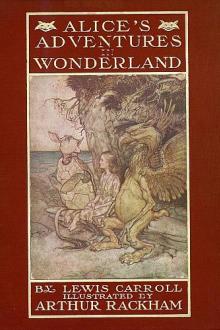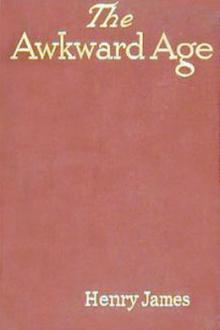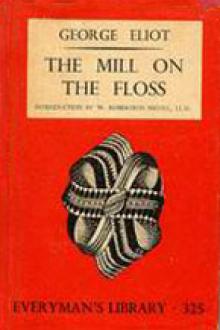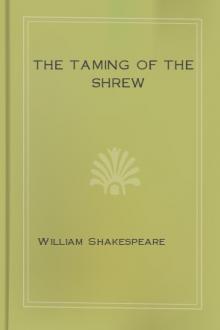Genre Fiction. Page - 272

destroy all copies of the works possessed in a physical medium and discontinue all use of and all access to other copies of Project Gutenberg-tm works.
- You provide, in accordance with paragraph 1.F.3, a full refund of any money paid for a work or a replacement copy, if a defect in the electronic work is discovered and reported to you within 90 days of receipt of the work.
- You comply with all other terms of this agreement for free distribution of Project Gutenberg-tm works.
1.E.9. If you wish to charge a fee or distribute a Project Gutenberg-tm electronic work or group of works on different terms than are set forth in this agreement, you must obtain permission in writing from both the Project Gutenberg Literary Archive Foundation and Michael Hart, the owner of the Project Gutenberg-tm trademark. Contact the Foundation as set forth in Section 3 below.
1.F.
1.F.1. Project Gutenberg volunteers and employees expend considerable effort to identify, do copyright research on, t

n ill-greased pulley, and ended by degenerating into a terrible spasm of coughing. The fire basket now clearly lit up his large head, with its scanty white hair and flat, livid face, spotted with bluish patches. He was short, with an enormous neck, projecting calves and heels, and long arms, with massive hands falling to his knees. For the rest, like his horse, which stood immovable, without suffering from the wind, he seemed to be made of stone; he had no appearance of feeling either the cold or the gusts that whistled at his ears. When he coughed his throat was torn by a deep rasping; he spat at the foot of the basket and the earth was blackened.
Étienne looked at him and at the ground which he had thus stained.
"Have you been working long at the mine?"
Bonnemort flung open both arms.
"Long? I should think so. I was not eight when I went down into the Voreux and I am now fifty-eight. Reckon that up! I have been everything down there; at first trammer, then putter, when I h

that for a moment she quite forgot how to speak good English); "now I'm opening out like the largest telescope that ever was! Good-bye, feet!" (for when she looked down at her feet, they seemed to be almost out of sight, they were getting so far off). "Oh, my poor little feet, I wonder who will put on your shoes and stockings for you now, dears? I'm sure I sha'n't be able! I shall be a great deal too far off to trouble myself about you: you must manage the best way you can--but I must be kind to them," thought Alice, "or perhaps they won't walk the way I want to go! Let me see: I'll give them a new pair of boots every Christmas."
And she went on planning to herself how she would manage it. "They must go by the carrier," she thought; "and how funny it'll seem, sending presents to one's own feet! And how odd the directions will look!
Alice's Right Foot, Esq. Hearthrug, near the Fender, (with Alice's love).
Oh dear, what nonsense I'm talking!"
Just then her head struck again

e in question at all, and that has condemned the freedom of the circle to be self- conscious, compunctious, on the whole much more timid than brave--the consequent muddle, if the term be not too gross, representing meanwhile a great inconvenience for life, but, as I found myself feeling, an immense promise, a much greater one than on the "foreign" showing, for the painted picture of life. Beyond which let me add that here immediately is a prime specimen of the way in which the obscurer, the lurking relations of a motive apparently simple, always in wait for their spring, may by seizing their chance for it send simplicity flying. Poor Nanda's little case, and her mother's, and Mr. Longdon's and Vanderbank's and Mitchy's, to say nothing of that of the others, has only to catch a reflected light from over the Channel in order to double at once its appeal to the imagination. (I am considering all these matters, I need scarce say, only as they are concerned with that faculty. With a relation NOT imaginative to his

moking a cigarette and entertaining himself with meditations in which thoughts of Alice competed for precedence with graver reflections connected with the subject of the correct stance for his approach-shots. Reggie's was a troubled spirit these days. He was in love, and he had developed a bad slice with his mid-iron. He was practically a soul in torment.
"Lady Caroline asked me to tell you that she wishes to speak to you, Mr. Byng."
Reggie leaped from his seat.
"Hullo-ullo-ullo! There you are! I mean to say, what?"
He was conscious, as was his custom in her presence, of a warm, prickly sensation in the small of the back. Some kind of elephantiasis seemed to have attacked his hands and feet, swelling them to enormous proportions. He wished profoundly that he could get rid of his habit of yelping with nervous laughter whenever he encountered the girl of his dreams. It was calculated to give her a wrong impression of a chap--make her think him a fearful chump and what not!
"La

Footsteps shuffled on the stair.
Under the firelight, under the brush, her hair
Spread out in fiery points
Glowed into words, then would be savagely still. 110
"My nerves are bad to-night. Yes, bad. Stay with me.
"Speak to me. Why do you never speak. Speak.
"What are you thinking of? What thinking? What?
"I never know what you are thinking. Think."
I think we are in rats' alley
Where the dead men lost their bones.
"What is that noise?"
The wind under the door.
"What is that noise now? What is the wind doing?"
Nothing again nothing. 120
"Do
"You know nothing? Do you see nothing? Do you remember
"Nothing?"
I remember
Those are pearls that were his eyes.
"Are you alive, or not? Is there nothing in your head?"

have known sinceour marriage.
Mrs. Linde. I know how fond you were of him. And then you wentoff to Italy?
Nora. Yes; you see we had money then, and the doctors insisted onour going, so we started a month later.
Mrs. Linde. And your husband came back quite well?
Nora. As sound as a bell!
Mrs. Linde. But--the doctor?
Nora. What doctor?
Mrs. Linde. I thought your maid said the gentleman who arrivedhere just as I did, was the doctor?
Nora. Yes, that was Doctor Rank, but he doesn't come hereprofessionally. He is our greatest friend, and comes in at leastonce everyday. No, Torvald has not had an hour's illness sincethen, and our children are strong and healthy and so am I. (Jumpsup and claps her hands.) Christine! Christine! it's good to bealive and happy!--But how horrid of me; I am talking of nothingbut my own affairs. (Sits on a stool near her, and rests her armson her knees.) You mustn't be angry with me. Tell me, is itreally true that you did not love your husband? Why did

afore two hourstogether passes my cunning. An' now you put me i' mind," continuedMrs. Tulliver, rising and going to the window, "I don't know where sheis now, an' it's pretty nigh tea-time. Ah, I thought so,--wanderin' upan' down by the water, like a wild thing: She'll tumble in some day."
Mrs. Tulliver rapped the window sharply, beckoned, and shook herhead,--a process which she repeated more than once before she returnedto her chair.
"You talk o' 'cuteness, Mr. Tulliver," she observed as she sat down,"but I'm sure the child's half an idiot i' some things; for if I sendher upstairs to fetch anything, she forgets what she's gone for, an'perhaps 'ull sit down on the floor i' the sunshine an' plait her hairan' sing to herself like a Bedlam creatur', all the while I'm waitingfor her downstairs. That niver run i' my family, thank God! no morenor a brown skin as makes her look like a mulatter. I don't like tofly i' the face o' Providence, but it seems hard as I should have butone gell, an' her s

t's a good thing we're not in that crowd."
In spite of the gruesome setting and the gory antics of the bull, the story is amusing in a way quite harmless. Similarly, too, there is only wholesome amusement in the woman's response to a vegetarian, who made her a proposal of marriage. She did, not mince her words:
"Go along with you! What? Be flesh of your flesh, and you a-living on cabbage? Go marry a grass widow!"
The kindly spirit of British humor is revealed even in sarcastic jesting on the domestic relation, which, on the contrary, provokes the bitterest jibes of the Latins. The shortest of jokes, and perhaps the most famous, was in the single word of Punch's advice to those about to get married:
"Don't!"
The like good nature is in the words of a woman who was taken to a hospital in the East End of London. She had been shockingly beaten, and the attending surgeon was moved to pity for her and indignation against her assailant.
"Who did this?" he demanded. "

forgot your name; but, sure, that partWas aptly fitted and naturally perform'd.
PLAYER.I think 'twas Soto that your honour means.
LORD.'Tis very true; thou didst it excellent.Well, you are come to me in happy time,The rather for I have some sport in handWherein your cunning can assist me much.There is a lord will hear you play to-night;But I am doubtful of your modesties,Lest, over-eying of his odd behaviour,--For yet his honour never heard a play,--You break into some merry passionAnd so offend him; for I tell you, sirs,If you should smile, he grows impatient.
PLAYER.Fear not, my lord; we can contain ourselves,Were he the veriest antick in the world.
LORD.Go, sirrah, take them to the buttery,And give them friendly welcome every one:Let them want nothing that my house affords.
[Exit one with the PLAYERS.]
Sirrah, go you to Barthol'mew my page,And see him dress'd in all suits like a lady;That done, conduct him to the drunkard's chamber,And call him 'madam,' do him obeisa